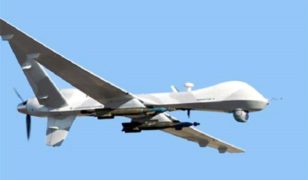Catalyst Space Accelerator launches data-focused cohort

On December 9, the Catalyst Space Accelerator (CSA) of Colorado Springs, CO announced the companies who will come together for three months of training, customer discovery, and networking in its fifth Accelerator session: Data Fusion for Space Applications.
This cohort, sponsored by Microsoft, provides each company with $15K in non-dilutive funding. Companies will have Department of Defense and Commercial Sherpas to assist them in making connections with potential customers and partners. The participants will learn how to navigate government contracting and how to shape their product into something the warfighter truly needs.
The Problem Space
The cohort as a whole will seek to address the Problem Statement from AFRL, “How might we take advantage of the latest in information analysis and data fusion to provide insight into space objects’ past, current, and predicted trajectories and understand spacecraft capabilities and operator intentions?”
“The world is entering into a second space age,” said the AFRL Problem Statement, “this time driven by economic opportunity as much as national or military interest.”
The growing number of humans in space is driving a sense of urgency to track space objects accurately, and the increasing interest in going to the moon and beyond means that we need to be able to track more objects, further away, on more complicated trajectories than ever before.
To make things more complicated, AFRL informed applicants to the program that they “should be prepared to address data sets that are sparse, irregular, and of disparate phenomenologies.”
The Best in Data Fusion
During the selection process, 20 applicants were narrowed down to eight companies accepted into the program.
114 AI – Their Artificial Intelligence (AI) Based Multi Sensor Data Fusion Solution incorporates suitable learning and reasoning mechanisms to execute an AI Sense-Plan-Act cognition cycle. Their approach to augmented learning with advanced reasoning allows the system to progressively evolve and to be contextually deployed in real scenarios.
Blue Eye Soft Corp – An IT and ITES company that uses AI and The Cloud to deliver Business Intelligence and Predictive Analytics. Their R&D is focused on fusing diverse advanced data sources like 3D/4D images and sound.
Caliola Engineering – In support of previous U.S. Air Force-funded efforts, Caliola developed an open source Modeling and Simulation platform that they are extending to generate synthetic Space Domain Awareness training data at scale. The company focuses on next-generation wireless network security and is currently developing a data-in-transit encryption solution.
InfraLytiks – A complex data analytics and automation company whose vision is to create a world where automation is commonplace and human resources are spent on creative, thought-provoking work and big picture tasks. They use machine learning and other forms of artificial intelligence to deliver automation projects that were once perceived as undoable.
O Analytics Inc – By applying digital signal processing and biometric techniques, the company can significantly reduce the resources needed to characterize and track objects. They offer data services and lab tested toolkits for high performance machine learning.
Slingshot Aerospace – Uses AI to draw actionable insights from a synthesis of satellite, aerial, ground observation, and contextual data streams at an unprecedented scale and speed. They provide disaster response teams, first responders, warfighters, and commercial entities with real time decision advantage.
Spectrabotics – The world’s first GeoDatic-Fusion™ company. Their data analytics and visualization services are currently solving tough data challenges for the Smart City and Smart Agriculture markets by aggregating, analyzing, and visualizing both geo-spatial information with Internet of Things data systems. Coupled with automated Process Mining, GeoDatic-Fusion™ tells users what, where, and why something is happening.
Vigilant – The Vigilant Intelligent Workspace was designed to allow information workers to find the right information at the right time, even as the number of data sources becomes overwhelmingly large. It uses a micro-AI to conduct research and synthesize information from various sources, saving 30%-60% of the time that workers would otherwise be spending in research.
Source: Catalyst Space Accelerator







